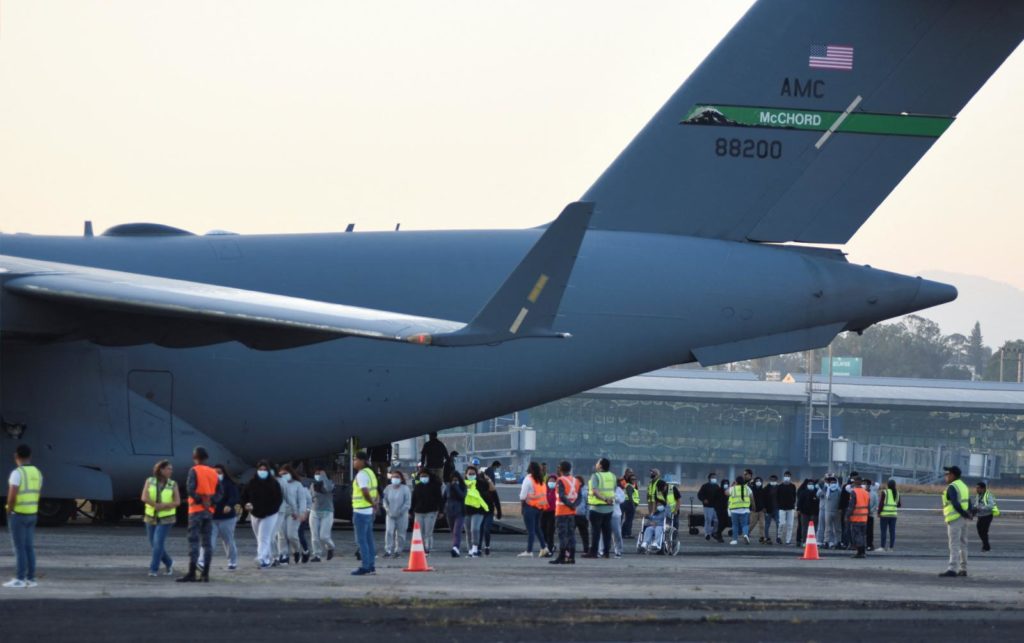“Our national debate about immigration frustrates me. … Many of our leaders seriously believe the issue can best be ‘solved’ by rounding up and removing everyone caught living in our midst without proper legal documents. This would be a human rights nightmare, involving the forced repatriation of a population roughly the size of Ohio. …
“Politicians talk in euphemisms about … making life so scary and harsh for people who are here illegally that they will want to leave the country of their own accord. From the courts and legislatures to the media and popular opinion, there is an outraged, personal tone to our immigration debate that you don’t hear very often in our politics.”
I wrote those words in 2013 at the beginning of my book, “Immigration and the Next America” (Our Sunday Visitor). I could write the same words today.
I’ve been ministering to migrants for nearly 40 years, from the time I was a young priest in Texas and Colorado. During that whole time immigration has continued to be a flashpoint in American life.
The recent controversies with the new administration in Washington, D.C., reflect a lack of awareness of the history and confusion about the duties of the Church and government.
The Church has been a good partner. Working with the government through Catholic Charities and other agencies, we have helped our nation welcome and settle millions of legal immigrants and refugees.
We work with efficiency and compassion and use the taxpayer monies entrusted to us wisely. On top of that, the Catholic faithful give very generously, not only their money but countless volunteer hours, to help those seeking a new life in our country.
The Catholic Church did not break the nation’s immigration system, but every day we deal with the human damage caused by that broken system: women and children who have been trafficked by coyotes and cartels; people who’ve been living and working in this country for decades but don’t have the rights or benefits of citizens; those addicted by the drugs being smuggled across our borders.
Now, once again, we are dealing with the fears of ordinary men, women, and children in our neighborhoods, parishes, and schools.
We all agree that we don’t want undocumented immigrants who are known terrorists or violent criminals in our communities. They should be removed from our country in a way that respects their rights and dignity as human beings.
But we still need to fix the broken system that allowed them to cross our borders in the first place. Not enough people in Washington seem to be serious about that.
The last comprehensive reform of our nation’s immigration system was in 1986.
It was a different world then: the Cold War was going on, the internet was experimental, there was no such thing as a “smart” phone; Mark Zuckerberg, the founder of Facebook, was two years old.
Forty years is a long time for our leaders to avoid solving an important problem. The failure of political will and courage has truly been bipartisan, and both parties have shown themselves willing to exploit the issue for political gain.
In the meantime, the American economy has changed and so has the global economic and financial system. The mass migration of poor peoples, displaced by wars, disasters, and instability in their home countries, has become a crisis for America and almost every nation in Europe.
The criticism of the Church is misplaced and distracts from the real issues, which are deep and decades old.
In 2013, a very different administration, from the other political party, was in power in Washington. That administration deported more than 5 million immigrants.
I said then and it’s still true today: Deportation is not an immigration policy.
Every nation has the solemn duty to control and secure its borders. But border walls need doors, too.
People are born with the natural right to emigrate in search of a better life, and prosperous nations are called to be generous in welcoming them.
But we cannot let everyone in who wants to live here, so there need to be rules and an orderly process for deciding who we welcome, how many we welcome, and under what conditions.
These are basic principles of Catholic teaching and international law. Other industrialized nations in the West have a coherent immigration policy. America should too.
Government has its responsibility and the Church has her mission. And I am praying that in the months ahead we will find ways to work together for the common good.
Pray for me and I will pray for you.
May Our Lady of Guadalupe, mother of Jesus and mother of all the peoples of the Americas, keep us close to her Son in this moment. May she help us to work together as neighbors, in a spirit of unity, to truly become one nation under God.

